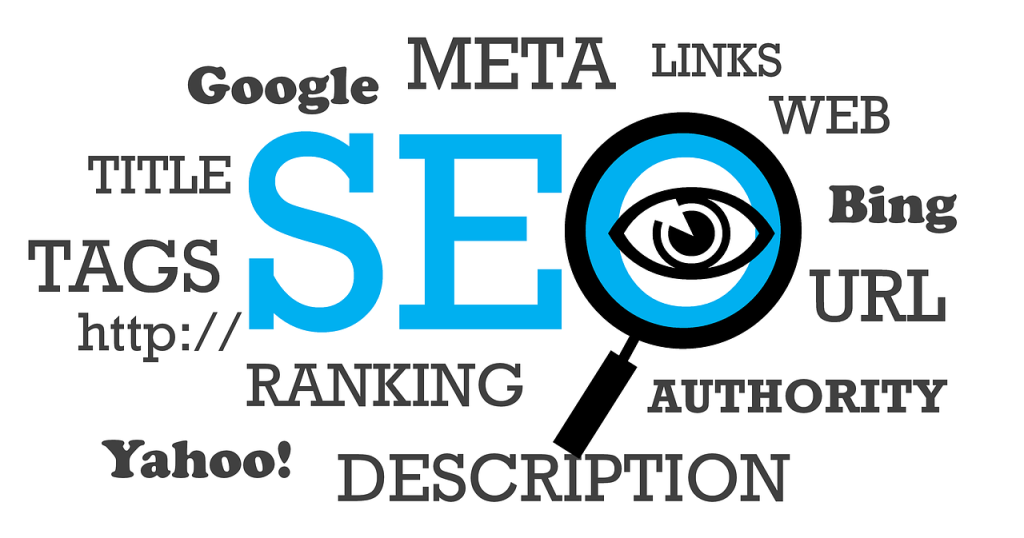 Digital Marketing
Digital Marketing
Article was written by Tim from senseiseo.net
Most people who use the internet find Search Engine Optimization a painful chore. It is difficult to blame them for the feeling, because making websites discoverable by search engines is time-consuming.
No matter what your feelings towards SEO or search engines are, they are the best way to get your website noticed. Finding out that your site has poor search rankings can make you glum.
Having good SEO practices bumps your site up to the top of these rankings. You have many good reasons to dance a jig if your website is number one on search engine rankings, and may want the help of an SEO consultant to move it in that direction.
 1. What is SEO?
1. What is SEO?
SEO is a term many netizens, website writers and business owners constantly grapple with. Properly defined, it is the process of making it easier for internet users to play detective and discover websites.
All major search engines, such as Google, Yahoo or Bing, come up with search results for videos, articles and other web content. These trusted guardians of the internet gather information about every site on the web. They boost sites to the top of their rankings and make them authority web pages.
These search engines rank content based on relevance to users. Internet users who look for information are likely to browse lists of search results, known as organic results, that search engines produce. The goal of all website owners is to make their sites more visible on search engines, and thus to internet users. They do this by affecting their websites’ results on these engines. The rat race applies to the internet and the aim, as always, is to top these results.
This is a practical marketing strategy for many website owners. Effective SEO practices take into account how internet users search for websites and the keywords netizens use. They also indexes common words and concepts associated with a topic, known as Latent Semantic Indexing. Strategically placed keywords and associated words on a web page help it to cruise internet highways and gather views.
2. Why SEO is nothing to scoff at
SEO is difficult to toggle with, and it is not surprising if a strand of your hair falls every time you think about it. Here are a few reasons why you must navigate SEO and use search engines, even at the risk of balding slightly. It is never wise to dismiss SEO.
a. Premier search engines give your website quality traffic
 Organic traffic from Google remains the top source of sustenance for most websites. Good SEO practices put you and your company ahead in the game. Your brand will enjoy more traffic, and scare off ever-increasing competition.
Organic traffic from Google remains the top source of sustenance for most websites. Good SEO practices put you and your company ahead in the game. Your brand will enjoy more traffic, and scare off ever-increasing competition.
In fact, good traffic may make competition work for you. Competitors may view and list your website, sending you even more referrals.
b. Search engines know which content you crave.
The power of SEO lies in its ability to know what content you hunger for. Search engines generate relevant leads, because internet users usually search for specific content. They are not only librarians, but internet tour guides as well. They point you to the exact page you need. Find company locations each time you look for them.
c. Search engines measure content.
You can play Sherlock Homes and track the origin of search engine traffic. Website owners can trace organic search engine traffic from its source. Once they discover this source, they can find out which keywords searchers most often use.
d. Social media and search engines are inseparable.
Social media and search engines are the best of friends. If you use discoverable keywords on your website, internet users are more likely to share your content on social media.
e. You boost your brand and knock the competition out.
If you associate your brand with a keyword that appears on Google, you are more likely to pummel your competitors. Attaching your brand name to a keyword that Google can use will give it a powerful boost.
f. SEO has long-term value
SEO, for all internet purposes, remains relevant today. The techniques that website owners should use to improve it are still effective. SEO experts recommend that optimizing for the internet user will reward website owners with better traffic and rankings. This will continue for a long time.
g. There is return on investment.
Optimizing keywords does not blow a hole in your pocket. There is a definite return of investment on SEO. According to studies, 96% of consumers search for businesses online. There are, on average, 6.1 billion searches on Google daily. Investing some effort in placing keywords strategically throughout an article is worth your while.
SEO lets you decide how your site features in search results. If thousands of prospects view your site, you will draw interested advertisers and put money on your table.
h. Search engines are still gaining market share
Search engines grab more market share because 80 to 90% of consumers read online reviews before buying a product. It makes sense to optimize keywords, because they spotlight your business in the dark.
i. Mobile bandwidth is becoming popular
The traffic delivered via mobile devices is ever-increasing. It has made tapping on keywords more important than before.
j. It keeps your content profile updated.
Proper SEO guarantees your presence on the internet. It ensures that your brand’s profile is constantly updated. Not having an updated presence online can deal your business a sharp blow.
3. Why sites must top search engine ranks
 Being at the top of search rankings has become so important that company bosses find the hairs at the backs of their necks sanding because of them. They can make organizations disappear as fast as their creators build them.
Being at the top of search rankings has become so important that company bosses find the hairs at the backs of their necks sanding because of them. They can make organizations disappear as fast as their creators build them.
The higher your website ranks on Google, the greater the amount of traffic it gets. Online ad network Chitika’s published research shows that a web page that ranks at the top of Google’s scorecards gets twice as much traffic as a counterpart ranked second. While the site in 1st place garnered 34.95% of total traffic, the page in 2nd place only gathered 16.96%.
Other statistics will back Chitika’s findings, if they are not convincing. Another study leaked from AOL Love shows that a winning site receives 42.5% of all click-through traffic, while the second gathers only 11.94%. A site in third place garners only 8.47% of total click-through traffic. Sites at the tail end of rankings collect fewer than 1% of clicks.. It stands to reason the sites at.the top have more credibility and receive more clicks.
4. Scrambling for the number 1 spot on Search Engines: managing SEO
SEO will not prick your toes and make you fidgety if you manage it in the right way. Simply have a few of these must-have strategies at the top of your head.
a. Keyword building
The first of these is keyword building. One of the biggest errors businesses make is to neglect keywords when putting articles up on their websites. Keywords are important words that have to do with the topic of an article or in many cases, a business.
Many companies put keyword research on the back-burner, because it is simply too time-consuming. Unfortunately, this means that search engines do not notice their websites. Ideally, websites should concentrate on long-tail keywords. Powerful keywords should have about 500 searches a month. They should not find too many websites searching for them either, as this would make them redundant. To make sure that the keyword is not too competitive, install a free browser tool like SEO for Firefox. This nifty toolbar pulls up the information that Google collects on every page.
Have your page’s title in mind. A dynamic title tag communicates what the page is about. The keywords you use will show whether the page is relevant or not. You will also have to write an effective summary of the page, or meta tag, that has all the keywords you want to use. To add, make sure that this page summary has content that will interest the reader.
b. Create quality back links
Back links guarantee your website’s quality. If your website has other high quality sites linking to it, search engines will give yours a push to the top. Making guest posts on other sites and participating in forums will boost the rankings and credibility of your own.
Link building is a time-consuming process that you must put your website through slowly and steadily. A general rule of thumb is that you should build no more than 5 links a day. About 20% of your links should point to other pages on your website. Poor traffic can affect your website’s ranking.
It is also important to connect to sites with various page ranks. Google penalizes sites that connect to those with page ranks that are either too high or low.
Part of link building is knowing how to use anchor texts. Create links by using words that are relevant to your services or content. If you offer pet sitting services, you can create links in an article about dog sitting. One sentence could read “Guarantee your pet’s safety by looking for the correct dog sitter” You could link one of its words to an authority website like Dogster, which specializes in pets and pet care.
c. Encourage social sharing
Another way to give your site a leg up is to encourage sharing on social media.
Each time you share your content on social media platforms like Facebook or Twitter, you create links to your site and enhance its visibility.
d. Develop long-term thinking
Getting adjusted to SEO practices takes time. You are not Speedy Gonzalez, and cannot do so in a single day. It will take patience to revise posts, especially if you are new to SEO.
e. Know how Google awards ranks to sites.
Knowing how search engines award ranks to sites always gives your website an edge. The search engine giant considers:
Use of keywords
Site structure
Site load speed
Time users spend on your site
Number of inbound links
and inbound link quality
f. Have a marketing plan
You may have SEO strategies at your fingertips, but these are not effective if you do not have a marketing plan in mind.
Know your strengths and marketing expertise. Think about what sets you apart from others and why users should care about the services you offer. Know which users you are targeting, and how to phrase your messages so that you connect with them. Take note of your competition, and why Google should rank your website higher.
g. Build relationships
Whether on or offline, businesses need connections to survive. It is always wise to embrace traditional marketing techniques. Write blog posts for other blogs and build good, old-fashioned relationships. This enhances the credibility and visibility of your site.
h. Make your site user-friendly
A site that is difficult to browse turns any user into a grouch. Improving your site’s structure can amplify its presence on the web. Google and other search engines index a site based on its structure. Sites which allow a user to navigate to another page within three clicks usually receive a higher ranking.
With the increasing use of mobile devices, it is important to keep their users in mind. About 60% of internet traffic comes from mobile searches, so making your site mobile friendly is paramount. Google considers mobile friendliness when ranking a site.
To assess if your site is mobile friendly, use the Google Webmaster Tool. Key in your URL and your Google will display results that show if your site is mobile friendly or not.
Making sites mobile friendly is easy with frameworks like Bootstrap. These frameworks scale the display width of your site to make it viewable on any device.
When choosing a theme for your website, consider how responsive it is for mobile use. If you pick a theme that is difficult for users to navigate, they will veer away from it immediately. To make images visible on any device, scale them to 100%. Focus on simple designs that are easy to navigate both on the desktop and a mobile device. Make sure that your images have a small enough file size. Use standard fonts.
i. Write the right content.
Google and other search engines prefer content-rich websites with longer articles than those with short, superficial articles. Write content with at least 200 words for search engines to index your blog posts. That said, search engines prefer content with at least 1000 words. Make sure that you include keywords about the topic in the titles of articles that you post on your blog.
After doing so, tag your content with keywords that are synonymous with your topic. If you write about tea, use keywords like “drinking tea” or “tea leaves”. Write a short meta summary, or description about your topic, making sure to use keywords as well.
j. Do not over optimize
While making your website search-engine friendly is necessary, there is a danger in becoming over-friendly with them. Do not over optimize your website.
Do not use the same anchor texts over and over. This lowers your website’s ranking on search engines. Build links naturally, linking texts to other sites when both are relevant. Remove duplicate content to avoid a Google penalty.
Note that you should take away links if they come from every page of a referring site. SEO professionals term these”site wide links.” They affect your site’s rankings.
5. Latent Semantic indexing
Latent Semantic Indexing (LSI) is an Indexing method that uses a mathematical method known as Single Value Decomposition to find the relationships between words and their associated concepts.
Expert LSI users apply correspondence analysis, a technique that identifies the relationships between words and their synonyms. As users prowl through search engines searching for websites, LSI will help them to turn up sites that have a similar theme, even if website owners fail to use keywords.
Developers program search engines such as Google, Bing and Yahoo to show relevant websites to those who search for specific topics. You will need to use LSI keywords to allow search engines to show your website when internet users search for specific content. If you run a website on pets, you would have to use “dog”, “cat”, “pet grooming” or “pet care” in your articles to prompt search engines to show your website to anyone searching for details on pets. Anyone searching for content on the web wants details, so using LSI keywords is necessary.
If you still raise your eyebrows when you hear the acronym “LSI”, fret no longer. A simple way to find out what these keywords are is to look at the words that turn up when you search for anything on the internet. When you search for recipes, Google should show you relevant phrases like “meal ideas”, “vegetarian recipes”, “dessert recipes” or “breakfast”. Find these words towards the bottom of the web page.
6. Choosing an SEO consultant
SEO is difficult to grasp, and can make you seem ten years older than you really are. For this reason, you might want to seek the help of an SEO consultant. Here is how to pick the best one.
a. References
The first step in doing so, of course, is to ask for his references. A reliable SEO consultant should feel comfortable discussing his past clients with you. He should have, on hand, his past projects. Traditional word-of-mouth referrals do not hurt either.
If you are dealing with a firm, ask who is on the team managing your site’s SEO. The smaller the number, the smaller the size of the firm. Both big and small firms have their pros and cons. Big firms tend to churn SEO in bulk, and hence neglect specific needs. Small firms, conversely, may find it difficult to manage your needs because of manpower shortage. It is important to find one that suits you.
b. Ranking improvement
A great number of consultants flood the SEO market, so it is important to find out what sets one apart from another. Ask a potential consultant how he plans to improve your website’s rankings and how his strategies differ from those used by other SEO experts.
c. SEO best practices
A credible SEO consultant should follow search engine guidelines. Before hiring a consultant, find out how familiar he is with Google’s guidelines for displaying content on the web. He should know recommended word limits and how to associate healthy website links to yours. He should know which links will cause negative changes to your website’s rankings, and avoid them.
Its also a good practice to be wary of SEO consultants who use guarantees. Essentially Google owns itself and changes there algorithms periodically which can effect website rankings which no SEO specialists in control of at those times. Instead its best to find a SEO specialist who uses a ‘best business practice’ who will continue to help you over your contract period to get the desired result.
d. Coding and other website changes
When you give your website to an SEO consultant to manage, prepare yourself for changes. He will have to introduce new codes and structures. Find out how he plans to share these changes with you, especially if you are not familiar with java script or other computer programming languages.
e. Content ownership
An SEO professional making changes to your website may put your ownership of it at risk. A clause in any contract you have with a consultant must guarantee that the website’s content remains yours, especially upon its termination.
To wrap up, SEO is not going to depreciate in value any time soon, so it is best for your website if you embrace it. Considering the long term benefits SEO can have on your personal or businesses website is an important feat. The results can be astounding.



